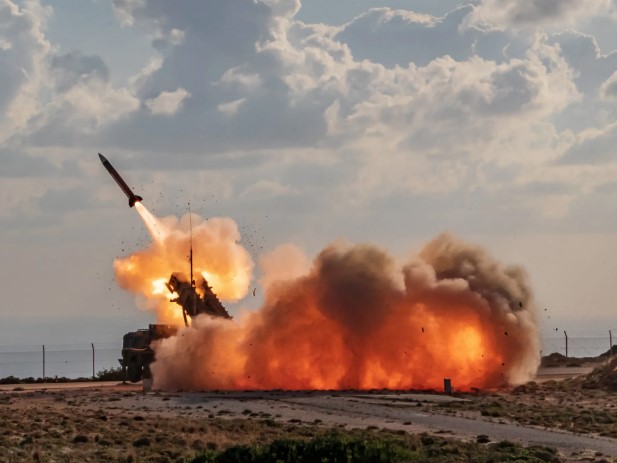Germany’s Defense Ministry clearly stated that it does not know of anyone currently sending Patriot air defense systems to Ukraine.
Germany Rejects Claim About Patriot Missile Delivery
This statement, made public on July 16, directly contradicts earlier claims that such shipments are already in progress. According to the German Defense Ministry, they have not confirmed or approved the movement of Patriot missile systems to Ukraine at this time.
A ministry spokesperson told Swiss broadcaster SRF, “I cannot confirm that anything is currently on the way. That is not known to me.” This brief but firm message has created confusion and raised eyebrows across the international defense community.
The backdrop of this denial is significant. Ukraine has been asking for more advanced air defense systems from its Western allies, especially amid the rising number of Russian missile and drone strikes on Ukrainian cities. In this context, any delays or misunderstandings about the delivery of military systems such as the Patriot missiles are critical.
Trump admits Ukraine needs defenses — but calls Patriots ‘very rare, very expensive’
Key Meeting Scheduled to Finalize Patriot System Discussions
While Germany has denied any current shipment, it has not completely ruled out the delivery of Patriot systems to Ukraine. Instead, officials have pointed to a planned meeting of the Ukraine Defense Contact Group (UDCG) scheduled for July 21. This virtual meeting will bring together defense representatives from allied countries to resolve questions and finalize decisions regarding support for Ukraine.
Germany has stated that this meeting will help speed up the process of implementing such deliveries. Germany and its European and NATO partners are closely discussing how and when they can supply more Patriot systems to Ukraine. However, they have not confirmed any physical movement of these systems so far.
🔥 NATO ramps up weapons flow to Ukraine as Trump warns Russia — Kremlin says it’s not afraid
Earlier on July 14, a German government spokesperson acknowledged that talks were ongoing with other European countries about providing more than three Patriot systems to Ukraine. However, this earlier statement still did not indicate that any shipment had actually begun.
Germany’s careful wording suggests that officials are still discussing support, the plan remains in its early phase, and no one has sent any missiles yet. The upcoming UDCG meeting may clarify what steps will follow.
A Disputed Claim Raises Eyebrows
Contrasting with Germany’s position, recent reports claimed that Patriot missile shipments were already underway. These reports suggested that Germany was sending its missile systems to Ukraine and would later replenish its stock through purchases from the United States. European countries reportedly follow a new NATO and EU arms coordination program, under which they send U.S.-made systems to Ukraine and later replace them through deals with Washington.
This model allows countries to support Ukraine without weakening their own defenses in the long run. According to these reports, some shipments were already “on the way,” and Germany was playing a key role.
The contradiction between these reports and the official German denial has caused confusion about what is really happening. If the reports were accurate, then some deliveries should already be in progress. But Germany’s defense officials are firm in saying no such delivery is currently known or confirmed.
Ukraine’s Patriot hope rides on NATO wallets — Trump enforces pay-to-arm model
This disagreement also highlights the complexity of multinational defense coordination. While countries agree in principle to support Ukraine, the actual logistics, schedules, and public messaging may differ, leading to situations like this, where statements clash.
At a time when Ukraine is facing intensified attacks, clarity and speed in delivering promised aid have become more important than ever. But in this case, there seems to be a gap between statements made to the public and what is actually taking place on the ground.

